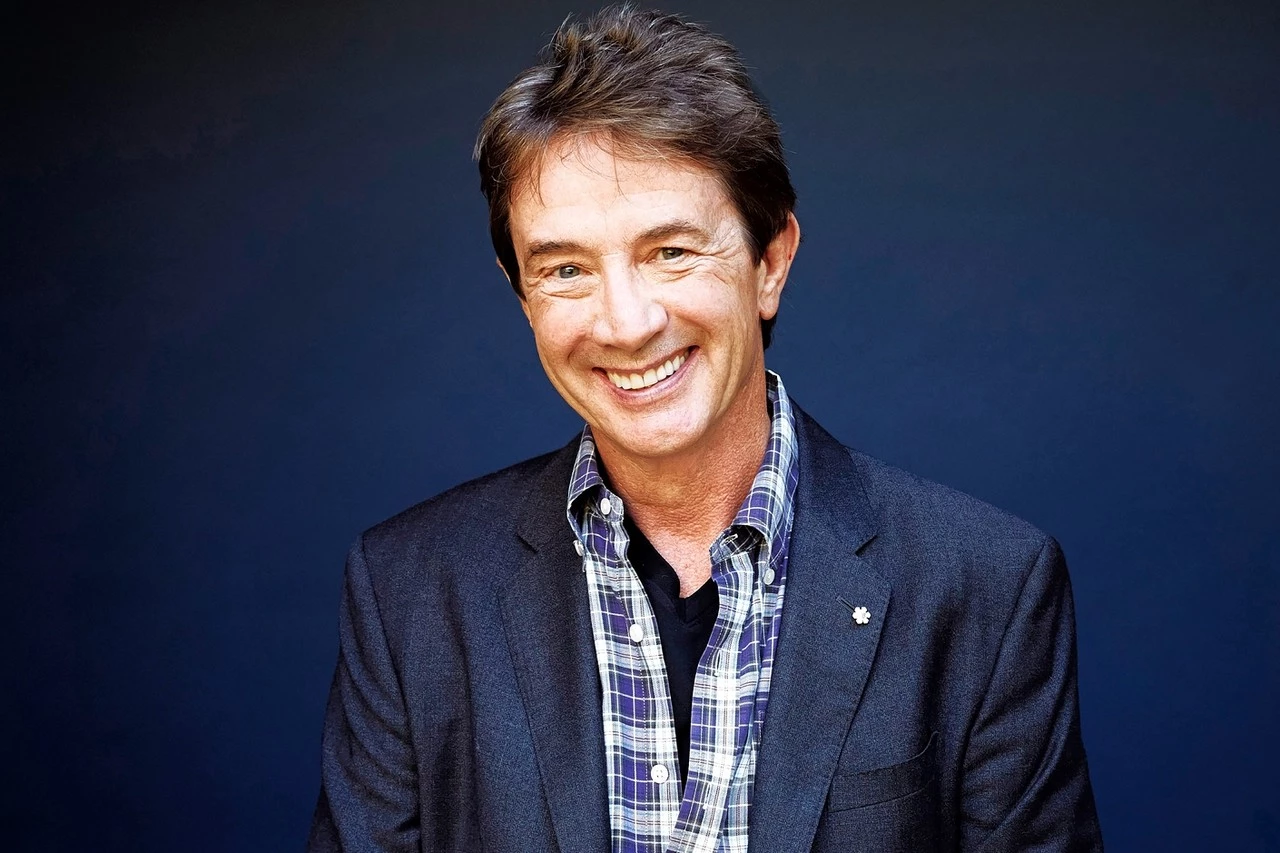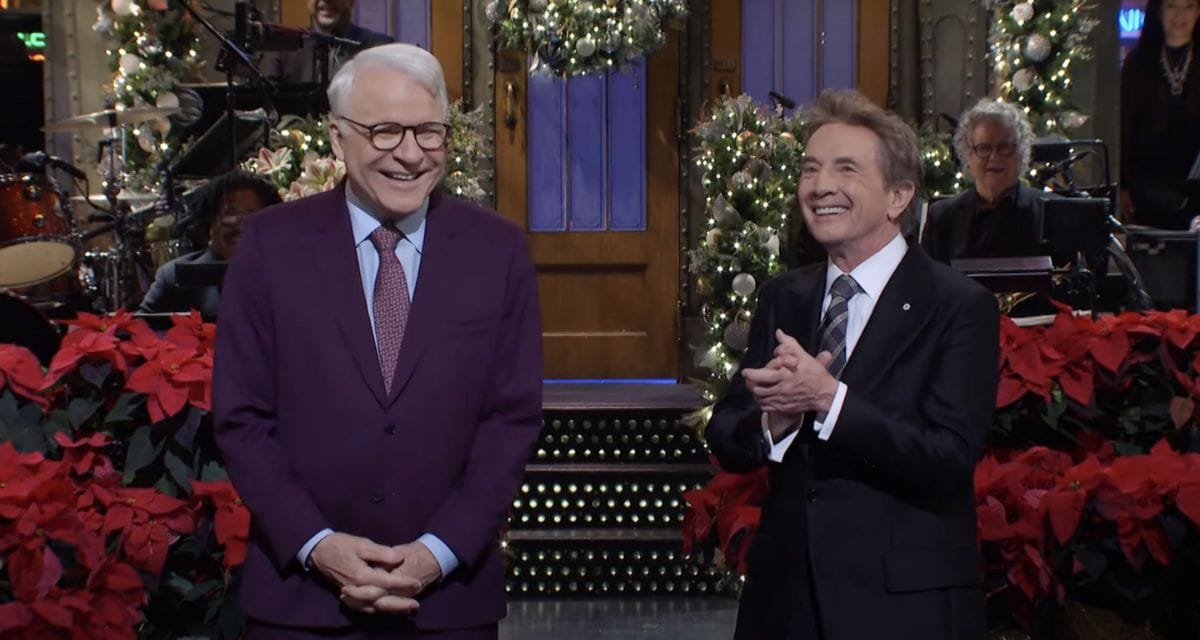Is Martin Short Gay? Unlocking The Truth
"Is Martin Short Gay An" is an interrogative phrase that inquires about the sexual orientation of Martin Short, a renowned Canadian actor and comedian.
Determining an individual's sexual orientation is essential for understanding their identity, fostering inclusivity, and addressing LGBTQ+ rights and protections. Historically, the right to privacy and the fight against discrimination have played crucial roles in shaping the social significance of this inquiry.
This article delves into the public's interest in Martin Short's personal life, exploring the societal impact of sexual orientation, the media's role in shaping perceptions, and the importance of respecting privacy and personal boundaries.
Is Martin Short Gay An
Exploring the key aspects surrounding this inquiry is crucial for understanding the social significance of sexual orientation, the media's role in shaping perceptions, and the importance of respecting privacy and personal boundaries.
- Personal Identity: Self-identification and self-acceptance.
- Social Acceptance: Societal attitudes and inclusion.
- Privacy Rights: Protection of personal information.
- Media Influence: Impact on public opinion and perception.
- Discrimination: Prejudice and bias based on sexual orientation.
- Representation: Visibility and portrayal in media and society.
- Intersectionality: Overlapping identities and experiences.
- Legal Protections: Anti-discrimination laws and marriage equality.
- Celebrity Culture: Public scrutiny and the erosion of privacy.
- Mental Health: Impact of societal attitudes on well-being.
These aspects are interconnected and complex, influenced by cultural, social, and historical factors. Understanding them provides a deeper perspective on the implications of the question "Is Martin Short Gay An" and its broader societal impact.
Martin Short Personal Details:
| Full Name: | Martin Hayter Short |
| Date of Birth: | March 26, 1950 |
| Place of Birth: | Hamilton, Ontario, Canada |
| Occupation: | Actor, comedian, writer |
| Known for: | SCTV, Saturday Night Live, Only Murders in the Building |
Personal Identity
Within the context of "Is Martin Short Gay An", personal identity encompasses the process of self-discovery, self-acceptance, and the formation of a coherent self-concept. It involves recognizing and embracing one's sexual orientation as an integral part of one's identity.
- Self-Awareness: Recognizing and understanding one's own feelings, thoughts, and desires, including sexual orientation.
- Self-Acceptance: Embracing and valuing oneself, including one's sexual orientation, without judgment or shame.
- Self-Expression: Communicating one's sexual orientation to others, if and when desired, in a safe and supportive environment.
- Self-Determination: Making choices and decisions that align with one's sexual orientation and values, regardless of external pressures or expectations.
These facets of personal identity are interconnected and essential for the well-being and authenticity of LGBTQ+ individuals. Understanding them provides a deeper perspective on the significance of the question "Is Martin Short Gay An" and its implications for personal and social acceptance.
Social Acceptance
In the context of "Is Martin Short Gay An," social acceptance encompasses societal attitudes, inclusion, and the recognition of LGBTQ+ individuals as valued members of society. It involves fostering a climate of respect, understanding, and equal opportunities for all, regardless of sexual orientation.
- Legal Protections: Laws and policies that safeguard the rights of LGBTQ+ individuals, such as anti-discrimination measures and marriage equality.
- Workplace Inclusion: Creating inclusive work environments that value diversity, prohibit discrimination, and provide equal opportunities for LGBTQ+ employees.
- Media Representation: Positive and authentic portrayals of LGBTQ+ characters and relationships in media, which can challenge stereotypes and promote understanding.
- Community Support: The existence of LGBTQ+ community centers, support groups, and social networks that provide a sense of belonging and resources for LGBTQ+ individuals.
These facets of social acceptance are crucial for the well-being and full participation of LGBTQ+ individuals in society. Understanding them provides a deeper perspective on the significance of the question "Is Martin Short Gay An" and its implications for creating a more just and equitable society.
Privacy Rights
Informatically, the question "Is Martin Short Gay An" intersects with privacy rights, specifically the protection of personal information. This connection stems from the inherent sensitivity of sexual orientation as a private matter and the potential impact of its disclosure on an individual's life.
Privacy rights are crucial in this context because they safeguard individuals' control over their personal information, including their sexual orientation. These rights empower individuals to make informed choices about who they share this information with and when, protecting them from unwanted exposure or discrimination.
Real-life examples abound where privacy rights have been violated in the context of sexual orientation. In the entertainment industry, for instance, celebrities have faced pressure to publicly disclose their sexual orientation, leading to both positive and negative consequences. Some have used this platform to advocate for LGBTQ+ rights, while others have faced backlash and criticism.
Understanding the connection between privacy rights and "Is Martin Short Gay An" is essential for several reasons. Firstly, it highlights the importance of respecting individuals' privacy and their right to control their personal information. Secondly, it emphasizes the potential consequences of disclosing sensitive information, particularly in contexts where discrimination or prejudice may exist. Finally, it underscores the need for robust privacy laws and ethical practices to protect individuals' rights in the digital age.
Media Influence
Within the context of "Is Martin Short Gay An," media influence encompasses the significant role that media outlets, including traditional and social media, play in shaping public opinion and perceptions about LGBTQ+ individuals.
- News Coverage: Media coverage of LGBTQ+ issues and individuals can influence public understanding, reduce prejudice, and promote acceptance.
- Stereotypical Portrayals: Media portrayals of LGBTQ+ characters and relationships often rely on stereotypes, which can perpetuate misconceptions and reinforce societal biases.
- Social Media Amplification: Social media platforms can amplify both positive and negative narratives about LGBTQ+ individuals, influencing perceptions and shaping public discourse.
- Sensationalism and Privacy: Media outlets may sensationalize or speculate about the sexual orientation of public figures, potentially violating their privacy and reinforcing the idea that sexual orientation is newsworthy.
These facets of media influence highlight the complex relationship between media, public opinion, and the personal lives of LGBTQ+ individuals. Understanding this dynamic is crucial for evaluating the impact of media coverage on LGBTQ+ rights, inclusion, and the overall social climate.
Discrimination
Discrimination based on sexual orientation is a form of prejudice and bias that negatively impacts LGBTQ+ individuals in various aspects of their lives. This discrimination can manifest in many ways, including employment, housing, healthcare, and social interactions.
Within the context of "Is Martin Short Gay An," discrimination can have a profound impact on an individual's decision to disclose their sexual orientation publicly. Fear of discrimination, harassment, or violence can lead LGBTQ+ individuals to remain closeted or to avoid situations where their sexual orientation may be revealed.
Real-life examples abound where discrimination based on sexual orientation has had devastating consequences for LGBTQ+ individuals. In the entertainment industry, for instance, actors and actresses have faced significant challenges in their careers due to their sexual orientation. Some have been denied roles, while others have been subjected to harassment and discrimination on set.
Understanding the connection between discrimination based on sexual orientation and "Is Martin Short Gay An" is crucial for several reasons. Firstly, it highlights the real and tangible consequences that LGBTQ+ individuals face due to their sexual orientation. Secondly, it emphasizes the importance of creating inclusive and supportive environments where LGBTQ+ individuals feel safe and respected. Finally, it underscores the need for continued advocacy and activism to combat discrimination and promote equality for all.
Representation
Within the context of "Is Martin Short Gay An," representation encompasses the visibility and portrayal of LGBTQ+ individuals in media and society. This representation plays a crucial role in shaping public perceptions, challenging stereotypes, and fostering inclusivity.
- Media Visibility: The extent to which LGBTQ+ characters and relationships are represented in various forms of media, including film, television, and literature.
- Authentic Portrayal: The accuracy and sensitivity with which LGBTQ+ characters are portrayed, avoiding harmful stereotypes and promoting realistic and nuanced representations.
- Real-Life Examples: Positive representations of LGBTQ+ individuals in media, such as the character of Captain Raymond Holt in the TV series "Brooklyn Nine-Nine," can challenge stereotypes and promote understanding.
- Social Impact: Representation can have a profound impact on LGBTQ+ individuals, providing them with role models, fostering a sense of belonging, and reducing feelings of isolation.
In conclusion, representation in media and society is a multifaceted aspect of "Is Martin Short Gay An" that influences public perceptions, challenges stereotypes, and promotes inclusivity. By ensuring accurate and visible representation of LGBTQ+ individuals, we can create a more just and equitable society for all.
Intersectionality
The concept of intersectionality, which recognizes that individuals possess multiple and overlapping identities and experiences, is closely connected to the question "Is Martin Short Gay An." Intersectionality sheds light on the complex and nuanced factors that shape an individual's identity and experiences, beyond just their sexual orientation.
For instance, Martin Short's sexual orientation intersects with his other identities, such as his gender, race, and socioeconomic status. These intersecting identities can influence his experiences of discrimination, prejudice, and privilege in various ways. As a gay man, he may face discrimination based on his sexual orientation, but as a white, cisgender male, he may also benefit from certain privileges in society.
Understanding the intersectionality of Martin Short's identity is crucial for a comprehensive analysis of the question "Is Martin Short Gay An." It allows us to recognize that his experiences are shaped by multiple factors and that his sexual orientation is just one aspect of his identity.
In conclusion, intersectionality provides a valuable framework for understanding the complexities of identity and experiences, including the question "Is Martin Short Gay An." By considering the multiple and overlapping identities of individuals, we gain a more nuanced and comprehensive understanding of their experiences and the challenges they may face.
Legal Protections
Within the context of "Is Martin Short Gay An," legal protections such as anti-discrimination laws and marriage equality play a pivotal role in safeguarding the rights and well-being of LGBTQ+ individuals, including Martin Short. These legal frameworks provide a crucial foundation for ensuring equal treatment and opportunities for all, regardless of sexual orientation.
Anti-discrimination laws prohibit unfair treatment and discrimination against individuals based on their sexual orientation in various aspects of life, such as employment, housing, and public accommodations. Marriage equality, on the other hand, recognizes and legalizes same-sex marriages, granting LGBTQ+ couples the same rights and benefits as heterosexual couples. These legal protections are essential for fostering a more inclusive and just society.
Real-life examples abound where legal protections have made a tangible difference in the lives of LGBTQ+ individuals. For instance, the legalization of same-sex marriage in the United States has provided LGBTQ+ couples with the right to marry the person they love, access spousal benefits, and have their relationships recognized by the government. Anti-discrimination laws have also been instrumental in protecting LGBTQ+ individuals from workplace discrimination and ensuring their equal access to employment opportunities.
The practical applications of understanding the connection between legal protections and "Is Martin Short Gay An" are far-reaching. Firstly, it highlights the importance of legal frameworks in safeguarding the rights of LGBTQ+ individuals and promoting equality. Secondly, it underscores the role of these laws in creating a more just and inclusive society where everyone is treated with dignity and respect. Finally, it emphasizes the need for continued advocacy and activism to strengthen and expand legal protections for LGBTQ+ individuals.
Celebrity Culture
The intense public scrutiny and erosion of privacy that often accompany celebrity culture have a significant impact on the lives of public figures like Martin Short. This phenomenon can manifest in various forms, affecting personal relationships, mental well-being, and career opportunities.
- Unwarranted Media Attention: The constant presence of paparazzi and media outlets can lead to relentless coverage of personal life, potentially violating boundaries and infringing on privacy.
- Social Media's Amplifying Effect: The proliferation of social media platforms has further intensified public scrutiny, as celebrities' actions and statements can be widely shared and analyzed, often without context.
- Rumors and Speculation: The public's fascination with celebrities often fuels a cycle of rumors and speculation, which can damage reputations and cause emotional distress.
In the context of "Is Martin Short Gay An," these factors can contribute to pressure on public figures to conform to societal expectations and suppress aspects of their personal lives. The erosion of privacy can also make it challenging for celebrities to maintain healthy relationships and pursue personal interests without fear of public judgment or ridicule. It is crucial to recognize the significant impact that celebrity culture can have on individuals' privacy and well-being.
Mental Health
Within the context of "Is Martin Short Gay An," the impact of societal attitudes on mental well-being is a crucial aspect to consider. Societal attitudes and expectations can significantly influence the mental health of LGBTQ+ individuals, including Martin Short. Negative attitudes, discrimination, and lack of acceptance can contribute to various mental health challenges.
- Stigma and Discrimination: The stigma surrounding non-heteronormative sexual orientations can lead to feelings of shame, isolation, and low self-esteem. Discrimination in various aspects of life, such as employment, housing, and healthcare, can further exacerbate mental health issues.
- Fear of Rejection: Many LGBTQ+ individuals fear rejection from family, friends, or society as a whole. This fear can lead to anxiety, depression, and a reluctance to be open about one's sexual orientation.
- Internalized Homophobia: In societies where negative attitudes towards homosexuality are prevalent, LGBTQ+ individuals may internalize these beliefs, leading to negative self-perceptions and feelings of inadequacy.
- Minority Stress: LGBTQ+ individuals often face chronic stress due to navigating a society that may not fully accept or support them. This minority stress can contribute to mental health issues such as anxiety, depression, and substance abuse.
Understanding the impact of societal attitudes on the mental well-being of LGBTQ+ individuals is crucial for creating a more supportive and inclusive society. By challenging negative stereotypes, reducing stigma, and fostering acceptance, we can create a climate where all individuals, regardless of their sexual orientation, can thrive and live healthy and fulfilling lives.
In exploring the question "Is Martin Short Gay An," this article has delved into various aspects, including personal identity, social acceptance, privacy rights, media influence, discrimination, representation, intersectionality, legal protections, celebrity culture, and mental health. Key insights emerging from this exploration include the complex interplay of personal and societal factors in shaping the lives of LGBTQ+ individuals, the importance of visibility and accurate representation, and the need for continued advocacy and legal protections to ensure equality and well-being for all.
The question "Is Martin Short Gay An" serves as a reminder that sexual orientation is a deeply personal matter, and respecting individuals' privacy and choices is paramount. It also highlights the interconnectedness of our experiences and identities, and the importance of creating a society where everyone feels valued and included, regardless of their sexual orientation. As we continue to strive for a more just and equitable world, let us embrace diversity, challenge harmful stereotypes, and work towards a future where all individuals can live authentically and without fear of discrimination.

Is Martin Short Gay? Addressing The Rumors

Is Martin Short Gay? Why Is He Rumored To Be Gay?

Is Martin Short Gay? The Truth Behind Martin Short's Sexuality TheZoneBB